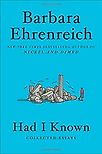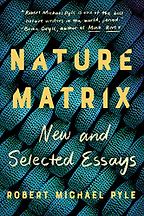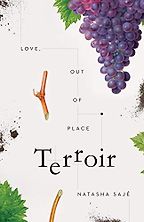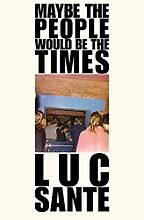- NONFICTION BOOKS
- BEST NONFICTION 2023
- BEST NONFICTION 2024
- Historical Biographies
- The Best Memoirs and Autobiographies
- Philosophical Biographies
- World War 2
- World History
- American History
- British History
- Chinese History
- Russian History
- Ancient History (up to 500)
- Medieval History (500-1400)
- Military History
- Art History
- Travel Books
- Ancient Philosophy
- Contemporary Philosophy
- Ethics & Moral Philosophy
- Great Philosophers
- Social & Political Philosophy
- Classical Studies
- New Science Books
- Maths & Statistics
- Popular Science
- Physics Books
- Climate Change Books
- How to Write
- English Grammar & Usage
- Books for Learning Languages
- Linguistics
- Political Ideologies
- Foreign Policy & International Relations
- American Politics
- British Politics
- Religious History Books
- Mental Health
- Neuroscience
- Child Psychology
- Film & Cinema
- Opera & Classical Music
- Behavioural Economics
- Development Economics
- Economic History
- Financial Crisis
- World Economies
- How to Invest
- Artificial Intelligence/AI Books
- Data Science Books
- Sex & Sexuality
- Death & Dying
- Food & Cooking
- Sports, Games & Hobbies
- FICTION BOOKS
- BEST FICTION 2023
- NEW Fiction
- World Literature
- Literary Criticism
- Literary Figures
- Classic English Literature
- American Literature
- Comics & Graphic Novels
- Fairy Tales & Mythology
- Historical Fiction
- Crime Novels
- Science Fiction
- Short Stories
- South Africa
- United States
- Arctic & Antarctica
- Afghanistan
- Myanmar (Formerly Burma)
- Netherlands
- Kids Recommend Books for Kids
- High School Teachers Recommendations
- Prizewinning Kids' Books
- Popular Series Books for Kids
- BEST BOOKS FOR KIDS (ALL AGES)
- Ages Baby-2
- Books for Teens and Young Adults
- THE BEST SCIENCE BOOKS FOR KIDS
- BEST KIDS' BOOKS OF 2023
- BEST BOOKS FOR TEENS OF 2023
- Best Audiobooks for Kids
- Environment
- Best Books for Teens of 2023
- Best Kids' Books of 2023
- Political Novels
- New History Books
- New Literary Fiction
- New Historical Fiction
- New Biography
- New Memoirs
- New World Literature
- New Economics Books
- New Climate Books
- New Math Books
- New Philosophy Books
- New Psychology Books
- New Physics Books
- THE BEST AUDIOBOOKS
- Actors Read Great Books
- Books Narrated by Their Authors
- Best Audiobook Thrillers
- Best History Audiobooks
- Nobel Literature Prize
- Booker Prize (fiction)
- Baillie Gifford Prize (nonfiction)
- Financial Times (nonfiction)
- Wolfson Prize (history)
- Royal Society (science)
- Pushkin House Prize (Russia)
- Walter Scott Prize (historical fiction)
- Arthur C Clarke Prize (sci fi)
- The Hugos (sci fi & fantasy)
- Audie Awards (audiobooks)
Make Your Own List

Nonfiction Books » Essays
The best essays: the 2021 pen/diamonstein-spielvogel award, recommended by adam gopnik.

WINNER OF the 2021 PEN/Diamonstein-Spielvogel Award for the Art of the Essay
Had I Known: Collected Essays by Barbara Ehrenreich
Every year, the judges of the PEN/Diamonstein-Spielvogel Award for the Art of the Essay search out the best book of essays written in the past year and draw attention to the author's entire body of work. Here, Adam Gopnik , writer, journalist and PEN essay prize judge, emphasizes the role of the essay in bearing witness and explains why the five collections that reached the 2021 shortlist are, in their different ways, so important.
Interview by Benedict King

Unfinished Business: Notes of a Chronic Re-Reader by Vivian Gornick


Nature Matrix: New and Selected Essays by Robert Michael Pyle

Terroir: Love, Out of Place by Natasha Sajé

Maybe the People Would be the Times by Luc Sante

1 Had I Known: Collected Essays by Barbara Ehrenreich
2 unfinished business: notes of a chronic re-reader by vivian gornick, 3 nature matrix: new and selected essays by robert michael pyle, 4 terroir: love, out of place by natasha sajé, 5 maybe the people would be the times by luc sante.
W e’re talking about the books shortlisted for the 2021 PEN/Diamonstein-Spielvogel Award for the Art of the Essay . As an essayist yourself, or as a reader of essays, what are you looking for? What’s the key to a good essay ?
I have very specific and, in some ways, old fashioned views on the essay—though I think that the books we chose tend to confirm the ‘relevance’, perhaps even the continuing urgency, of those views. I think that we always ought to distinguish the essay from a political editorial or polemic on the one hand, and from a straight memoir or confession on the other. The essay, for me, is always a form in which it’s significant—more than significant, it’s decisive—that it has some form of first-person address, a particular voice bearing witness at a particular time. An essay isn’t a common claim, it’s not an editorial ‘we’, it’s not a manifesto. It’s one writer, one voice, addressing readers as though face-to-face. At the same time, for me—and I think this sense was shared by the other judges, as an intuition about the essay—it isn’t simply What Happened to Me. It’s not an autobiographical memoir, or a piece taken from an autobiographical memoir, wonderful though those can be (I say, as one who writes those, too).
Let’s turn to the books that made the shortlist of the 2021 PEN Award for the Art of the Essay. The winning book was Had I Known: Collected Essays by Barbara Ehrenreich , whose books have been recommended a number of times on Five Books. Tell me more.
One of the criteria for this particular prize is that it should be not just for a single book, but for a body of work. One of the things we wanted to honour about Barbara Ehrenreich is that she has produced a remarkable body of work. Although it’s offered in a more specifically political register than some essayists, or that a great many past prize winners have practised, the quiddity of her work is that it remains rooted in personal experience, in the act of bearing witness. She has a passionate political point to make, certainly, a series of them, many seeming all the more relevant now than when she began writing. Nonetheless, her writing still always depends on the intimacy of first-hand knowledge, what people in post-incarceration work call ‘lived experience’ (a term with a distinguished philosophical history). Her book Nickel and Dimed is the classic example of that. She never writes from a distance about working-class life in America. She bears witness to the nature and real texture of working-class life in America.
“One point of giving awards…is to keep passing the small torches of literary tradition”
Next up of the books on the 2021 PEN essay prize shortlist is Unfinished Business: Notes of a Chronic Re-Reader by Vivian Gornick.
Vivian Gornick is a writer who’s been around for a very long time. Although longevity is not in itself a criterion for excellence—or for this prize, or in the writing life generally—persistence and perseverance are. Writers who keep coming back at us, again and again, with a consistent vision, are surely to be saluted. For her admirers, her appetite to re-read things already read is one of the most attractive parts of her oeuvre , if I can call it that; her appetite not just to read but to read deeply and personally. One of the things that people who love her work love about it is that her readings are never academic, or touched by scholarly hobbyhorsing. They’re readings that involve the fullness of her experience, then applied to literature. Although she reads as a critic, she reads as an essayist reads, rather than as a reviewer reads. And I think that was one of the things that was there to honour in her body of work, as well.
Is she a novelist or journalist, as well?
Let’s move on to the next book which made the 2021 PEN essay shortlist. This is Nature Matrix: New and Selected Essays by Robert Michael Pyle.
I have a special reason for liking this book in particular, and that is that it corresponds to one of the richest and oldest of American genres, now often overlooked, and that’s the naturalist essay. You can track it back to Henry David Thoreau , if not to Ralph Waldo Emerson , this American engagement with nature , the wilderness, not from a narrowly scientific point of view, nor from a purely ecological or environmental point of view—though those things are part of it—but again, from the point of view of lived experience, of personal testimony.
Let’s look at the next book on the shortlist of the 2021 PEN Awards, which is Terroir: Love, Out of Place by Natasha Sajé. Why did these essays appeal?
One of the things that was appealing about this book is that’s it very much about, in every sense, the issues of the day: the idea of place, of where we are, how we are located on any map as individuals by ethnic identity, class, gender—all of those things. But rather than being carried forward in a narrowly argumentative way, again, in the classic manner of the essay, Sajé’s work is ruminative. It walks around these issues from the point of view of someone who’s an expatriate, someone who’s an émigré, someone who’s a world citizen, but who’s also concerned with the idea of ‘terroir’, the one place in the world where we belong. And I think the dialogue in her work between a kind of cosmopolitanism that she has along with her self-critical examination of the problem of localism and where we sit on the world, was inspiring to us.
Get the weekly Five Books newsletter
Last of the books on the shortlist for the 2021 Pen essay award is Maybe the People Would Be the Times by Luc Sante.
Again, here’s a writer who’s had a distinguished generalised career, writing about lots of places and about lots of subjects. In the past, he’s made his special preoccupation what he calls ‘low life’, but I think more broadly can be called the marginalized or the repressed and abject. He’s also written acute introductions to the literature of ‘low life’, the works of Asbury and David Maurer, for instance.
But I think one of the things that was appealing about what he’s done is the sheer range of his enterprise. He writes about countless subjects. He can write about A-sides and B-sides of popular records—singles—then go on to write about Jacques Rivette’s cinema. He writes from a kind of private inspection of public experience. He has a lovely piece about tabloid headlines and their evolution. And I think that omnivorous range of enthusiasms and passions is a stirring reminder in a time of specialization and compartmentalization of the essayist’s freedom to roam. If Pyle is in the tradition of Thoreau, I suspect Luc Sante would be proud to be put in the tradition of Baudelaire—the flaneur who walks the streets, sees everything, broods on it all and writes about it well.
One point of giving awards, with all their built-in absurdity and inevitable injustice, is to keep alive, or at least to keep passing, the small torches of literary tradition. And just as much as we’re honoring the great tradition of the naturalist essay in the one case, I think we’re honoring the tradition of the Baudelairean flaneur in this one.
April 18, 2021
Five Books aims to keep its book recommendations and interviews up to date. If you are the interviewee and would like to update your choice of books (or even just what you say about them) please email us at [email protected]
Support Five Books
Five Books interviews are expensive to produce. If you've enjoyed this interview, please support us by donating a small amount .
©Brigitte Lacombe
Adam Gopnik
Adam Gopnik has been a staff writer at the New Yorker since 1986. His many books include A Thousand Small Sanities: The Moral Adventure of Liberalism . He is a three time winner of the National Magazine Award for Essays & Criticism, and in 2021 was made a chevalier of the Legion d'Honneur by the French Republic.
We ask experts to recommend the five best books in their subject and explain their selection in an interview.
This site has an archive of more than one thousand seven hundred interviews, or eight thousand book recommendations. We publish at least two new interviews per week.
Five Books participates in the Amazon Associate program and earns money from qualifying purchases.
© Five Books 2024

IMAGES
VIDEO
COMMENTS
1 Had I Known: Collected Essays by Barbara Ehrenreich. 2 Unfinished Business: Notes of a Chronic Re-Reader by Vivian Gornick. 3 Nature Matrix: New and Selected Essays by Robert Michael Pyle. 4 Terroir: Love, Out of Place by Natasha Sajé. 5 Maybe the People Would be the Times by Luc Sante.